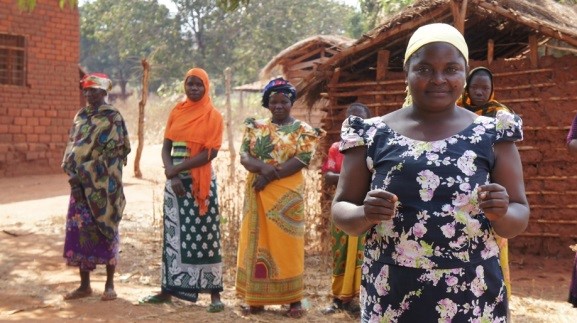The Business Case for Women's Economic Empowerment: What is the Way Forward?
The private sector is a main actor for women's economic empowerment in rural value chains: large traders, retailers or manufacturers often hold the keys to improving women’s access to extension services, financial services, input provision, market information and technology. They also have the negotiating power to include gender equality in the agendas of producers’ associations and cooperatives.
 Important progress has been achieved during the past ten years, and the business case for women's economic empowerment has become increasingly clear as a growing number of companies have adopted the Calvert Principles, followed by the UN Women's Empowerment Principles. Gender analysis of specific value chains—like the cocoa one, often said to be a "male crop" in Ghana and India—have shown that women play an important role in its production, as part of farming families, as wage laborers or as farmers themselves, and that women are particularly engaged in those aspects of production critical for attaining quality.
Important progress has been achieved during the past ten years, and the business case for women's economic empowerment has become increasingly clear as a growing number of companies have adopted the Calvert Principles, followed by the UN Women's Empowerment Principles. Gender analysis of specific value chains—like the cocoa one, often said to be a "male crop" in Ghana and India—have shown that women play an important role in its production, as part of farming families, as wage laborers or as farmers themselves, and that women are particularly engaged in those aspects of production critical for attaining quality.
Considering these elements, one would expect that companies are investing huge amounts of money and effort to improve their competitiveness by promoting women’s empowerment in their supply chains, with large-scale impacts. This is partially true. Many large companies are investing in social projects that benefit women in their value chains, and trying to project the image of a gender-sensitive (or transformative) company.
On the other side, the reality and research from rural areas tells us that access to resources and training are still biased against women. In addition to this, according to Oxfam’s Behind the Brands campaign, of the ten largest food companies, half of them score poorly or very poorly in their commitment to fight gender discrimination.
The reasons for this idiosyncrasy are multifaceted, with roots lying both inside and outside the companies themselves. Below I’m sketching some of these challenges, based on CARE’s experience with programs targeting women in rural value chains.
- While there is an overall understanding inside the private sector around the importance of gender equality in the supply chain from a social and brand perspective, its impact on key business drivers like agricultural productivity and quality of production still needs a tighter analysis for specific crops and contexts. Most companies would not object to adding gender equality as a crosscutting element of their extension work, financial services or other business development services. However, investing resources to specifically target women in a differentiated manner requires more buy-in.
- Gender inequality also builds upon power relations inside households and communities, and upon a gendered division of labor and benefits in the society whose root causes are only partially understood. These structural aspects take long-term efforts to be changed and require strategies targeting cultural norms and informal institutions. Several interventions targeting extension services or other business development services fail to address important systemic elements and their impacts end up being short-lived.
- Changing women’s role in a society can carry real risks for women that need to be considered. For instance, increased women's mobility in some contexts increases the risks of gender-based violence. This risk might dissuade companies from hiring female extension officers, unless provisions are made to mitigate this risk (e.g. going out accompanied). The associated financial costs can be outweighed by the longer-term benefits, but more research is needed to define or quantify the gains. CARE is facing the specific challenge of advocating for more female extension officers in our coffee value chain program in Papua New Guinea.
- The capacity of many private sector companies to mainstream gender equality in their business and in their supply chain is still a work in progress and in need of external support, particularly at the community and vulnerable groups levels. Partnerships with civil society can play a key role in overcoming this challenge.
- Local governments in many countries are important providers of rural extension services and run their own rural development programs. Therefore any strategy to empower women in rural value chains needs to include these important stakeholders, which presents clear opportunities but also specific challenges for effective partnerships that must be considered.
The main questions, from a civil society perspective, are these: How can we support and engage with the private sector and other stakeholders in order to overcome these barriers? What are the risks and how can they be mitigated? What are the lessons learned and evidence that can be shared from the field to help us in this task?
We invite you to join us in thinking through these challenging questions at our session “The Role of the Private Sector in Women’s Economic Empowerment” in the Women’s Economic Empowerment track as part of the SEEP Network Annual Conference. The session will explore these issues from different angles: the civil society angle (through Oxfam and CARE), the private sector angle (through SAB Miller) and the think tank perspective (through ICRW).
Celebrating 30 years, the SEEP Network’s 2015 Annual Conference (Sep. 30 - Oct. 1) has created a dynamic track on Women's Economic Empowerment designed to promote frank discussions on our key assumptions in how to best connect women’s economic empowerment to social and political empowerment while helping to increase the adaptive capacity of women to sustain economic gains for themselves and their families.


